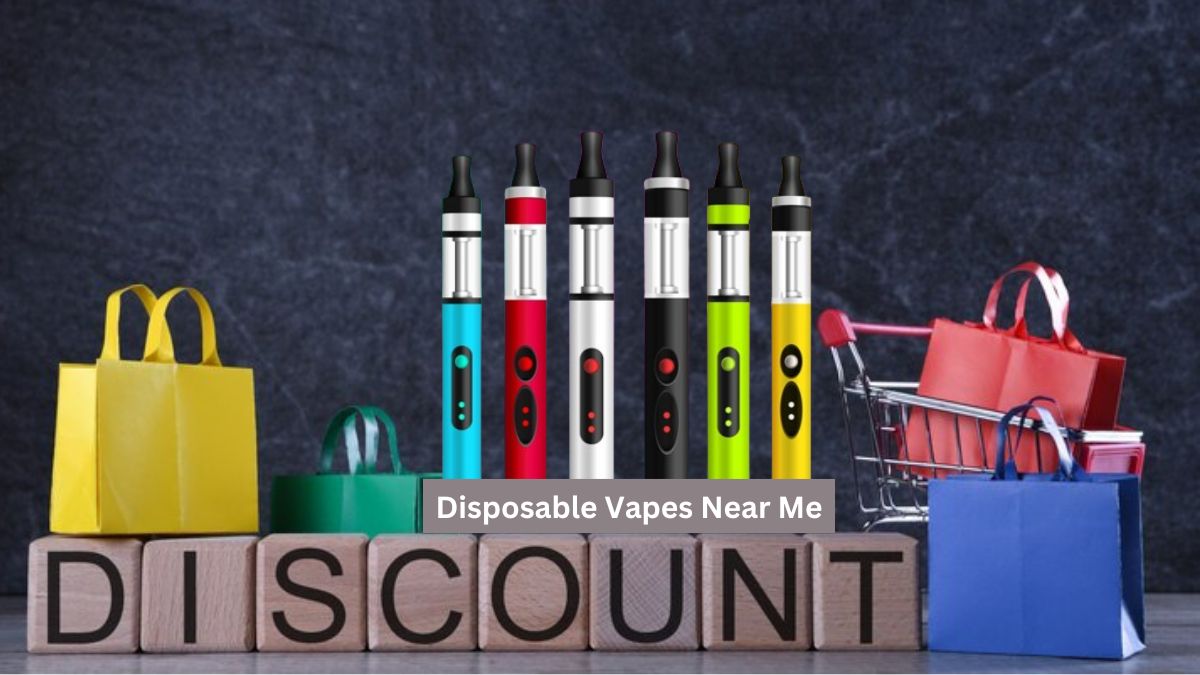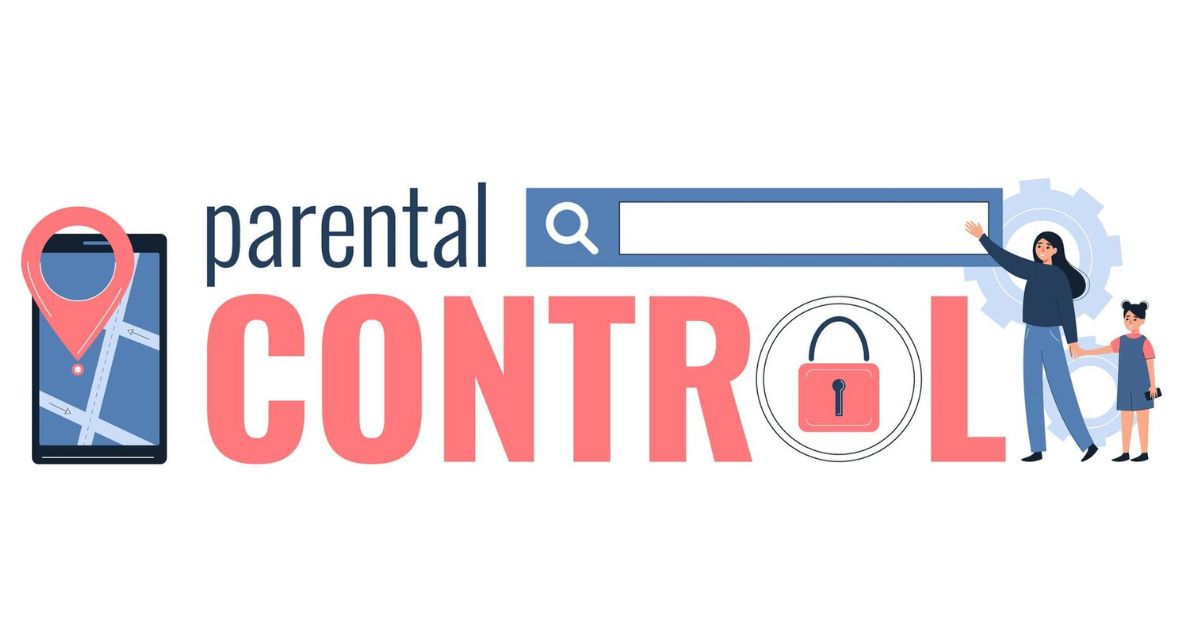How To
How to Save Money on Disposable Vapes Near Me: Tips and Tricks

In order to enjoy vaping without the inconvenience of maintenance or refilling, disposable vapes near me are a practical solution. Nevertheless, there may be a price to pay for their convenience. Read on for some advice on how to save costs on disposable vapes in your area. These tips can assist any vaper, from novices to seasoned pros, maximize their vaping experience without draining their money accounts.
Comparison Shop for the Best Deals
Finding the best deal on disposable vapes near me requires some research into other stores’ offerings. Although convenience stores may provide a fast solution, it’s more likely that you’ll discover cheaper prices when you buy online or at dedicated vape shops. If you want to get the most out of your money, you should look into sales and pricing.
Online Retailers
Retailers selling disposable vapes online may typically offer lower pricing than their brick-and-mortar counterparts because of their lower overhead costs. If you want to buy anything good at a fair price, you should search for trustworthy internet vendors that have good ratings. In order to get the most out of your money, you should look out for sales, discounts for larger purchases, and offers of free delivery.
Local Vape Shops
Smart consumers may find a veritable treasure mine of sales and bargains at their neighborhood vape shops. If you are looking for a way to save money on disposable vapes, you could visit your local vape store and see if they have any continuing deals or loyalty programs. Getting to know the staff at your neighborhood vape shop might also lead to exclusive offers and insider information.
Buy in Bulk
An excellent long-term financial strategy is to buy disposable vapes near me in quantity. You may save money by purchasing in bulk from several stores, so you can enjoy all of your favorite tastes without worrying about running out. To save money and take advantage of bulk prices, think about combining forces with loved ones.
Subscription Services
The convenience of receiving a cheap supply of your preferred items on a regular basis is made possible by subscription services offered by several online shops for disposable vapes. Subscribing will save you time and money since it will automatically restock your vape supplies whenever you need them.
Wholesale Options
You can save a ton of money by buying disposable vapes in bulk if you’re a frequent vaper or run a vape store. The ability to buy things for a fraction of the retail price is made possible by the fact that many manufacturers provide wholesale prices for orders placed in bulk. For details on wholesale pricing and required minimum orders, get in touch with vendors directly.
Extend the Lifespan of Your Disposable Vapes Near Me
Even though disposable vapes are only meant for one use, there are ways to make them last longer and save money. You can prolong the life of your vaping equipment and cut costs on replacement parts by giving it the TLC it needs and making the most of its capabilities.
Proper Storage
The best way to store your disposable vape is in an upright position to avoid leaks, extend the life of the battery, and keep the e-liquid fresh. To extend the life of your gadget and keep it in perfect condition, keep it away from dampness, direct sunlight, and extremely hot or cold conditions. To keep your vape secure while you’re on the go, think about getting a carrying case or pouch.
Moderate Your Usage
Although it may be enticing to suck on your disposable vape continuously, taking it easy can help it last longer and save power. To avoid overheating and the e-liquid running out too quickly, take shorter pulls and don’t chain vape. You may extend the life of your disposable vaporizer and cut costs on refills by using it moderately.
Looking for more vape tips and tricks? Then, check out the rest of our site.
DIY Refill Options
To get the most out of your disposable vape and prolong its life, you might look into DIY refill possibilities if you’re in the experimental mood. Some versions can be dismantled and filled with your preferred e-liquid, however not all devices can be filled in this way. Be careful not to harm your equipment or yourself by not following the manufacturer’s instructions.
Compatible E-Liquids
It is crucial to utilize e-liquids that are suitable with vaping devices when you refill your disposable vape. Stay away from DIY or unproven remedies that might harm your device or perhaps put you at risk. If you want to have fun while staying safe when vaping, stick to well-known brands and compositions.
Proper Technique
Careful attention to detail is required when filling a disposable vape in order to prevent leaks, spills, and malfunctions. If you need help, look for detailed instructions online or reference the manufacturer’s manual. If you want to refill your gadget without any mishaps, take your time and be careful with it.
Conclusion
Investing in disposable vapes near you doesn’t have to break the bank if you put in the time, effort, and imagination. You may enjoy vaping on a budget by shopping around, buying in bulk, finding ways to make your device last longer, and looking into do-it-yourself refill possibilities. If you want your disposable vaping experience to be both enjoyable and long-lasting, make sure safety and quality are your top priorities.
Frequently Asked Questions
Are disposable vapes cost-effective in the long run?
For light to moderate smokers, disposable e-cigarettes can be a good budget choice, but regular users may end up spending more on refillable alternatives.
Can I refill a disposable vape with any e-liquid?
Some disposable vaporizers can’t be filled, and the ones that can need specific e-liquids to work properly. In order to properly refill your gadget, you should always refer to the manufacturer’s instructions.
How can I tell if my disposable vape is nearing the end of its lifespan?
Flavor and vapor output fall, drawing becomes harder, and the battery life of your disposable vape decreases, all of which indicate that it may be time to replace it. Consider getting a new gadget if you have any of these issues.
Are there any risks associated with DIY refill options?
There are hazards associated with DIY refill choices, such as the possibility of device damage, leakage, and exposure to dangerous chemicals. Exercise cautious and adhere to the manufacturer’s instructions to reduce the likelihood of these hazards.
Where can I find the best deals on disposable vapes near me?
You can usually get the greatest prices on disposable vapes when you purchase online, at specialist vape shops, or with subscription programs. You can get the most bang for your buck by taking the time to look into sales and discounts.
Did you find this article helpful? If so, check out the rest of our site for more informative content.
How To
How to find dominatrix in your town: A Comprehensive Guide

Looking for a how to find dominatrix in your town in your town? Whether you’re curious or ready to explore the world of BDSM, finding a dominatrix can be an exciting journey. But how do you get started? This guide walks you through everything you need to know, from understanding your interests to locating trustworthy, professional dominatrix services near you. Let’s dive in!
Understanding What You Want
Before you begin your search, take a moment to identify what you’re looking for in a dominatrix. Are you interested in light domination, role-play, or something more specific? The BDSM world is diverse, and knowing your preferences helps ensure you connect with someone who can meet your needs.
Researching the BDSM Community
Joining a local BDSM community can be incredibly helpful. Many cities have BDSM groups that host regular events, meetups, and workshops. Engaging in these communities can provide valuable insight, help you learn about local practices, and make finding a dominatrix easier.
There are numerous forums and websites dedicated to BDSM and kink-friendly communities. Platforms like Reddit, FetLife, and specialized BDSM forums offer spaces to connect, learn, and even find local dominatrix services.
MUST READ: www.politicser.com Pepperboy News: A Deep Dive into Trending Political Coverage
Safety First: Essential Considerations
Safety is paramount when engaging in BDSM. Always understand the principles of consent, negotiation, and boundary-setting. Remember, BDSM is based on mutual respect, and all activities should be consensual and safe.
Privacy is also crucial. When connecting with someone new, be mindful of sharing personal information and respect the privacy of the dominatrix as well.
Certain online directories are specifically designed for finding dominatrix services. Websites like KinkBNB, Domina.ms, and others provide listings for professional dominatrices. However, take time to review profiles carefully, and look for verified accounts to avoid scams.
Exploring Social Media Platforms
Many dominatrices use social media platforms like Twitter, Instagram, and FetLife to share their services, events, and availability. Following these profiles can provide insight into the dominatrix’s style, values, and offerings. Look for professionalism in posts, and avoid profiles that seem overly promotional or lack detail.
BDSM events, workshops, and meetups can be fantastic opportunities to connect with local professionals and enthusiasts. Attending these events allows you to meet potential dominatrices in a safe, public setting and learn more about the community.
Joining BDSM-Specific Websites
Websites like FetLife cater to those interested in BDSM. By creating a profile on these platforms, you can network, connect, and learn from others who share your interests. Remember to approach others respectfully and engage in conversations that show you’re genuinely interested in learning and respecting the community’s norms.
Apps like Whiplr and KinkD are designed for people interested in kink and BDSM. These apps often allow you to filter searches based on location, making it easier to find a dominatrix in your area. Make sure to read reviews and check out profiles thoroughly to ensure authenticity.
Seeking Professional Services
Working with a professional dominatrix ensures a higher level of skill, safety, and discretion. Professional dominatrices typically have established protocols and a good reputation within the community. When possible, look for client testimonials or verified profiles.
Once you’ve found a dominatrix you’d like to contact, approach them with respect and professionalism. A polite, respectful message expressing your interest and asking about availability and services goes a long way. Avoid using overly explicit language or making assumptions about the experience.
Discussing Expectations and Limits
It’s essential to communicate your desires and boundaries clearly. Most professional dominatrices will have an initial conversation to discuss your preferences, boundaries, and any concerns. Don’t be afraid to ask questions—this helps ensure both of you are comfortable.
Prepare for your first session by familiarizing yourself with basic etiquette and ensuring you’re in the right mindset. Mentally prepare by understanding that this experience requires trust, open-mindedness, and a willingness to follow instructions.
Understanding Session Etiquette
During a session, always respect the how to find dominatrix in your town rules and guidance. This ensures a positive, enjoyable experience for both parties. Remember, your role is to follow their lead and respect their boundaries.
Conclusion
How to find dominatrix in your town in your town is an adventure that requires respect, discretion, and patience. By engaging with your local BDSM community, exploring online resources, and approaching professionals with courtesy, you can make meaningful connections and enjoy an exciting, safe BDSM experience. Embrace the journey and take the time to learn, communicate, and prepare.
FAQs
How can I ensure safety when meeting a dominatrix?
Always verify credentials, ask for references, and meet in public or reputable spaces initially. Safety protocols are essential for a positive experience.
Is it normal to have a discussion about boundaries before a session?
Absolutely. A professional dominatrix will discuss boundaries, expectations, and safety measures beforehand to ensure a consensual experience.
What should I avoid when contacting a dominatrix?
Avoid using explicit language or making assumptions. Approach with respect and keep initial messages polite and professional.
Can I find a dominatrix through social media?
Yes, many dominatrices use platforms like Twitter or Instagram. Look for professional profiles and avoid accounts that seem unverified or overly promotional.
READ MORE: CLICK HERE
How To
How to Access MyBookCave.com: A Step-by-Step Guide

Accessing how to access mybookcave.com can be a game-changer if you’re looking to expand your reading list and discover great books on a budget. Let’s take a deep dive into the website’s features, registration process, and tips to help you find books you’ll love.
What Is MyBookCave.com?
MyBookCave.com is a book promotion and discovery platform designed to connect readers with new books, often at discounted prices or even free. MyBookCave allows you to customize your reading experience by choosing your preferred genres and book types, tailoring recommendations to match your interests.
MyBookCave offers curated recommendations based on your reading preferences, making it easier to find books suited to your tastes. With free eBooks, deals, and premium content options, MyBookCave provides a comprehensive, cost-effective way to explore books across genres.
MUST READ: www.goodmooddotcom.com Hotels Category
Creating an Account on MyBookCave
Creating an account on MyBookCave is essential for accessing its full range of features. Follow these simple steps to set up your profile.
Step-by-Step Registration Process
- Visit MyBookCave.com: Start by navigating to the website on your desktop or mobile device.
- Click on “Sign Up”: You’ll typically find this option in the top-right corner.
- Provide Basic Information: Enter your name, email, and create a password.
- Verify Your Email: Check your inbox for a confirmation email from MyBookCave and click the link provided.
- Login: After verification, log in using your credentials.
Choosing Your Preferences
During registration, you’ll be prompted to select your genre and content preferences. These preferences ensure MyBookCave suggests books that align with your tastes.
Navigating the MyBookCave Interface
Once logged in, you’ll find a user-friendly interface with easy navigation. The main dashboard features sections for book recommendations, deals, and personalized reading suggestions.
Exploring Book Recommendations and Deals
How to access mybookcave.com recommendations include best-sellers, new releases, and hidden gems. The “Deals” section highlights limited-time offers, where you can often find discounted or free eBooks.
Understanding Book Preferences
MyBookCave allows you to specify both genre and content preferences, ensuring recommendations are tailored to your comfort level.
Setting Your Genre Preferences
Select your preferred genres from a wide array, including romance, mystery, fantasy, and non-fiction, to name a few. These choices determine the recommendations you’ll receive.
Selecting Content Rating Preferences
Content ratings let you filter books based on themes, language, and maturity levels. Options range from general (suitable for all) to adult (explicit themes).
Using MyBookCave’s Free eBook Feature
One of how to access mybookcave.com standout features is its free eBook offerings. Many authors offer their books for free for limited periods, allowing you to sample new works without a financial commitment.
How to Access MyBookCave’s Premium Features
While free content is available, MyBookCave also offers premium features for a monthly subscription. Premium members have access to exclusive deals and early access to popular titles.
Downloading Books from MyBookCave
To download a book, click on the title, then follow the prompts to either add it to your library or download it directly. Some books are available in multiple formats like ePub, Kindle, or PDF.
How to Use MyBookCave on Mobile Devices
For mobile access, open your device’s browser and navigate to MyBookCave.com. The site is optimized for mobile, and all features are available without needing an app.
Troubleshooting Access Issues on MyBookCave
If you’re having trouble accessing how to access mybookcave.com, consider these common fixes.
Common Login Problems
If you’re unable to log in, double-check your email and password. You can reset your password by clicking on the “Forgot Password” link.
Browser Compatibility Tips
For optimal performance, ensure you’re using an up-to-date browser like Chrome, Firefox, or Safari. Clear your browser cache if the website isn’t loading correctly.
Privacy and Security on MyBookCave
MyBookCave takes user privacy seriously, with a commitment to data protection and secure transactions. Always review privacy policies and adjust your account settings to control what information is shared.
Tips for Getting the Most Out of MyBookCave
- Sign up for Alerts: how to access mybookcave.com offers email alerts for new deals and free eBooks, keeping you updated on offers.
- Try Different Genres: Expand your reading horizons by exploring new genres from time to time.
- Follow Authors: Follow your favorite authors to receive updates on their latest releases and deals.
Conclusion
MyBookCave.com is an invaluable tool for book lovers, offering a wide array of free and discounted books, personalized recommendations, and an easy-to-use interface. Whether you’re an avid reader or just starting, MyBookCave makes discovering new books convenient and affordable.
FAQs
1. Can I access MyBookCave for free?
Yes, MyBookCave offers free registration and access to various free eBooks and deals. Premium memberships are optional.
2. What types of books are available on MyBookCave?
MyBookCave offers books across a variety of genres, including romance, thriller, sci-fi, and non-fiction.
3. Is there a mobile app for MyBookCave?
MyBookCave doesn’t have a dedicated app, but it is optimized for mobile access via your browser.
4. How do I change my genre preferences?
You can change your genre preferences by going to your account settings and updating your selections.
5. Are the books on MyBookCave DRM-protected?
Some books may have DRM, depending on the publisher. Be sure to check individual titles for DRM information before downloading.
How To
How Much Would Month to Month Bowling Alley Cost?

Bowling is more than just a sport; it’s a social experience, a fun way to bond with friends and family, and a unique venue for hosting events. How much would month to month bowling alley cost on a month-to-month basis, the cost can vary widely based on a number of factors. If you’re considering renting a bowling alley and wondering about the financials, this article will break down all the key elements that influence the price and give you an idea of what to expect.
What Is a Month-to-Month Bowling Alley Rental?
Renting a bowling alley on a month-to-month basis means you’re paying for the use of the facility for one month at a time, without being tied to a long-term lease. This type of rental offers more flexibility compared to yearly or multi-year contracts, making it an attractive option for people who need temporary access, such as for special events, tournaments, or business activities.
Month-to-month rentals can be particularly appealing for businesses that need space on a flexible basis. It’s also great for individuals or groups who only plan to use the space temporarily but want a reliable spot to enjoy the game regularly. Think of it as a gym membership for bowling enthusiasts—perfect for those who want consistent access without committing to a long-term contract.
MUST READ: Ufimski Aviation University: A Gateway to the Skies
Factors Affecting the Cost of Month-to-Month Bowling Alley Rental
When calculating the cost of renting a bowling alley on a month-to-month basis, several factors will influence the price. Let’s dive into the primary elements that affect rental fees.
One of the most significant factors in pricing is the location of the bowling alley. A bowling alley in a bustling urban area with high demand will likely be more expensive than one in a smaller, suburban town. Popular locations often charge more due to higher foot traffic, especially during peak seasons like holidays or weekends.
The size of the alley, including the number of lanes and the capacity to accommodate guests, plays a major role in pricing. A larger facility with more lanes and seating will generally cost more to rent than a smaller, more intimate venue. If you’re looking to host a large-scale event or party, expect the rental price to reflect the size and capacity needed.
Equipment and Amenities Provided
What comes with your rental? Does the alley provide high-quality bowling balls, shoes, and other gear? Some alleys include these as part of the rental fee, while others may charge extra. Amenities like food services, a bar, or entertainment systems may also add to the overall cost.
Prices can fluctuate depending on the time of year. For instance, demand is often higher during the holiday season, school vacations, or weekends, leading to increased prices. If you’re flexible with your rental period and can book during off-peak times (e.g., weekdays or non-holiday months), you may be able to negotiate a lower rate.
Duration of Rental Period
Even though you’re renting on a month-to-month basis, some venues may offer price breaks if you rent for multiple consecutive months. While a month-to-month rental is ideal for short-term use, booking for longer durations (3-6 months) could result in discounted rates.
Cost Breakdown
Now that we’ve covered the main factors influencing rental fees, let’s break down the different costs that may be included in your month-to-month bowling alley rental.
The primary cost is the rental fee itself, which can range from a few hundred to a few thousand dollars per month, depending on the factors mentioned above. Smaller alleys might charge around $1,000–$2,000 per month, while larger, high-end bowling venues could cost $5,000 or more.
Additional Costs (Cleaning, Maintenance, Staff)
Some bowling alleys include cleaning and maintenance costs in the rental fee, while others may charge extra. For example, if the alley needs to be cleaned or lanes need to be serviced during or after your event, these costs could add up. Some facilities also charge for the use of staff members, such as lane attendants or bartenders.
If you’re renting the alley for a special event, such as a birthday party, corporate gathering, or a league tournament, expect to pay additional fees for event coordination, catering, or decorations. These services are usually customizable and priced separately.
Many bowling alleys require renters to purchase event insurance, which protects both you and the venue in case of accidents or damages. This is an added cost that you’ll want to account for when planning your budget.
Average Pricing Range
Let’s look at some estimated prices for different types of bowling alley rentals.
Small Bowling Alleys
For small, neighborhood bowling alleys with just a few lanes, you might expect to pay around $1,000 to $3,000 per month. These are ideal for casual users or smaller events and gatherings.
Medium to Large Bowling Alleys
For medium-sized venues with more lanes and better amenities, prices typically range between $3,000 and $5,000 per month. This price would include things like a bar, better equipment, and more comfortable seating arrangements.
High-Demand Locations (Urban Areas vs. Suburban Areas)
Bowling alleys located in urban centers or highly sought-after tourist destinations can be significantly more expensive. In cities like New York, Los Angeles, or Chicago, expect prices to range from $5,000 to $10,000 or more per month, particularly during peak times.
Pros and Cons of Month-to-Month Bowling Alley Rentals
Pros:
Flexibility: Renters can adjust or cancel the rental based on their needs without being locked into a long-term contract.
No Long-Term Commitment: Ideal for short-term events, casual use, or businesses that need temporary space.
Potential for Discounts: Off-peak rentals or smaller alleys may offer more affordable prices.
Cons:
Price Fluctuations: Rental rates may vary based on demand and season.
Availability: High-demand locations might be booked well in advance, especially during busy periods.
How to Save on Month-to-Month Bowling Alley Rentals
If you’re hoping to save money on your month-to-month rental, consider these tips:
Book During Off-Peak Times: Weekdays and non-holiday months tend to be less expensive.
Negotiate Deals: Some bowling alleys may offer discounts for first-time renters or during off-peak hours.
Compare Different Venues: Don’t settle for the first bowling alley you find. Shop around to find the best rates and amenities.
Consider Long-Term Contracts: If you plan to use the space regularly, see if a longer-term commitment can provide a better deal.
Other Considerations Before Renting a Bowling Alley
Before committing to a bowling alley rental, make sure to consider other factors:
Staff and Equipment Availability: Ensure the alley provides enough staff and well-maintained equipment for your needs.
Venue Setup: Ask about the layout of the space and whether it fits your event’s requirements.
Accessibility: Check for adequate parking, public transportation options, and ADA accessibility.
Safety Regulations: Ensure the facility follows necessary safety and health protocols, especially for large events.
Conclusion
Renting a bowling alley on a month-to-month basis offers flexibility, convenience, and the opportunity to enjoy this fun activity without long-term commitments. However, the cost can vary widely depending on factors such as location, size, amenities, and seasonal demand. By understanding these factors and knowing how to negotiate or book during off-peak times, you can get the best deal on your rental.
Frequently Asked Questions (FAQs)
How much does a month-to-month rental typically cost?
A month-to-month rental can range from $1,000 to $5,000 or more, depending on the size of the bowling alley and its location.
What is included in the rental cost for a bowling alley?
Typically, the rental includes access to the lanes and basic equipment. Additional services, like staff, catering, or event coordination, may be extra.
Is it cheaper to book a bowling alley for a month-to-month basis versus booking a long-term contract?
Month-to-month rentals offer flexibility but may be more expensive in the long run. If you plan to use the space regularly, a long-term contract might be more cost-effective.
What factors influence the cost of renting a bowling alley?
Location, size, equipment, seasonal demand, and special event services all play a role in determining the rental cost.
Can I rent a bowling alley for private events on a month-to-month basis?
Yes, many bowling alleys offer month-to-month rentals for private events, allowing you to book for birthday parties, corporate events, and more.
READ MORE: CLICK HERE
-

 LIFE STYLE3 months ago
LIFE STYLE3 months agoExploring the World: A Journey with myfavouriteplaces.org
-

 EDUCATION10 months ago
EDUCATION10 months agoλιβαισ: Unraveling the Cultural Enigma
-

 BUSINESS10 months ago
BUSINESS10 months agoRetra: Revolutionizing Workflow Management
-

 Health3 months ago
Health3 months agowww healthsciencesforumcom: Your Go-To Source for Reliable Health Information
-

 ENTERTAINMENT3 months ago
ENTERTAINMENT3 months agoHow Ollyhibs TikTok revolutionized sports industry
-

 TECHNOLOGY11 months ago
TECHNOLOGY11 months agoUnlocking the Potential: Exploring the Power of GPT66X
-

 HEALTH & FITNESS11 months ago
HEALTH & FITNESS11 months agoUnderstanding Blisterata: Causes, Symptoms, and Treatment
-

 VAPE9 months ago
VAPE9 months agoHush Absolute Vape: Elevate Your Vaping Experience












